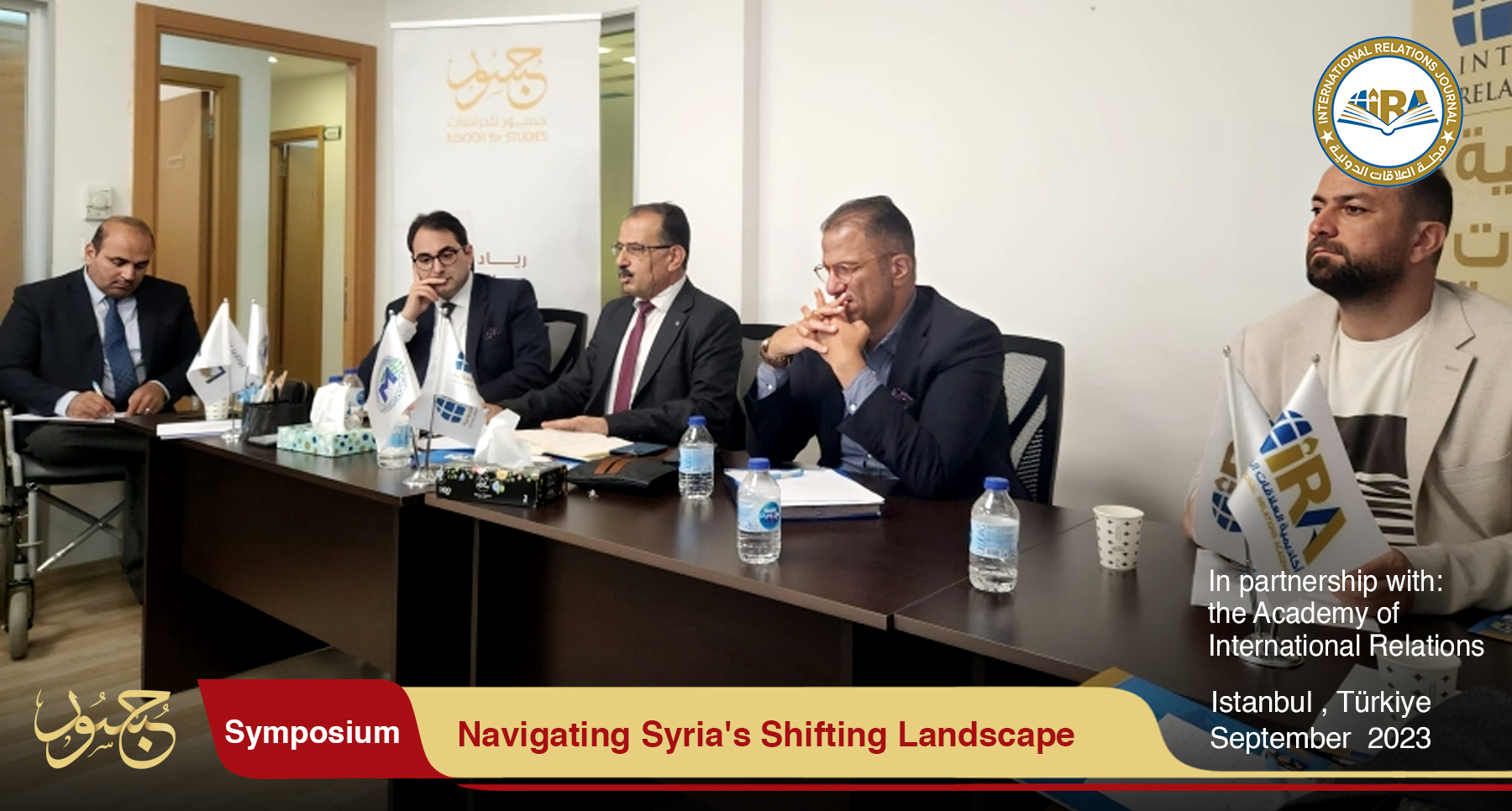Navigating Syria's Shifting Landscape
In partnership with the Academy of International Relations, Jusoor Center for Studies hosted a symposium to discuss the trajectories and transformations of the Syrian landscape.
The symposium drew a mosaic of eminent personalities from the Syrian opposition: activists, media professionals, members of political bodies, representatives from civil society organizations, and researchers from strategic think tanks.
The participants delved into the political, economic, and on-the-ground scenarios in Syria, shining a light on the ramifications of Arab and Turkish normalization and its implications for the Syrian file.
The discussions in the dialogue indicated that the determinant assuring Turkey's interests is its long-term presence to safeguard its national security from organizations it classifies as terrorist ones. On the other hand, it was emphasized that the axis of Turkish normalization differs from Arabic in terms of the mechanism for normalizing relations with the regime, due to reasons related to both Turkish domestic and foreign affairs.
Furthermore, there are no benefits for Turkey in resuming relations with the regime on a regional and international level; as any normalization step would be taken with the regime would be contingent on meeting Russia's demands in its relations with Turkey; as Ankara does not have direct dialogue with the regime, but rather communicates with the influential states concerning normalization issues.
The participants also touched upon the positioning of international players in the Syrian dossier and the role of regional and global trajectories in finding a solution for Syria.
The symposium underscored that there is significant attention and a central positioning by active parties in the Syrian file. There are challenges, opportunities, and deals being explored in the Syrian arena, including regional and international pathways to broker agreements concerning Syrian affairs.
The participants also noted that there are active states in the Syrian file that have not sought to resolve the Syrian crisis, but have instead managed it, leaving it in a state of stagnation across all tracks. To achieve tangible results, a new pathway must be proposed to lessen the impact of military action and de-escalate the situation on the ground.
The attendees discussed the repercussions of the unrest in As-Suwayda and its political impact on the Syrian regime, especially after its return to the Arab League.
Regarding the unrest in As-Suwayda, the attendees highlighted that the regime has been unable to provide security, food, and electricity to its citizens. The state's presence is now felt only through its repressive power. This regime has relied on social bases, making sure to increase them in a way that they do not pose a challenge against it.
The discussions also shed light on the confrontations witnessed in the Euphrates' eastern region between Arab tribal fighters and the SDF (Syrian Democratic Forces) in Deir ez-Zor, and its extension to the countryside of Manbij, east of Aleppo.
The discussants clarified that the recent unrest in the eastern Euphrates region and the countryside of Manbij aimed to undermine the authority of the SDF in response to their practices against local residents. This battle was far from straightforward, particularly given the asymmetric warfare in terms of strength, training, logistical support, and combat capabilities.
On the economic front, the participants discussed the internal economic situation and its linkage to political decisions amidst the deteriorating living conditions in Syria. The ongoing collapse of the Syrian pound was highlighted, along with the Syrian regime's disregard for the humanitarian crisis facing its people.
The economic segment of the symposium highlighted the challenges faced by the economy in northern Syria, including the lack of modern tools, absence of new technologies, insufficient water and gas supplies, weak production, and scarcity of agricultural activities in the lands.
It was revealed that there are opportunities and variables for creating a new "economic model" through the establishment of a new negotiation process to benefit from, and realize profits at the economic and commercial levels. Consequently, these would take the form of partnerships and negotiating procedures among the parties involved.
The discussions concluded with the necessity of coordinating the efforts of strategic research centers to shed light on field changes and study political decisions that could alter and impact recent developments, such as the unrest in As-Suwayda and operations in the eastern Euphrates region.
In addition to that, the ability to create an economic model that helps boost Syria's internal economy and capitalize on potential opportunities in negotiation processes was discussed, with the aim to alleviate the economic challenges plaguing the Syrian interior.








